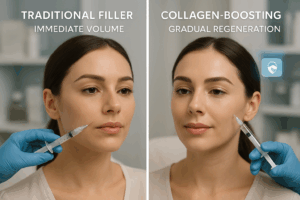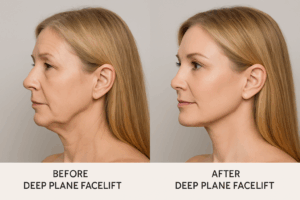Achieving Perfection in Areola Shaping
In breast surgery, achieving the perfect areola shape is a mix of art and science. Many patients wonder how plastic surgeons create perfectly circular areolas. The secret lies in a tool resembling a ‘cookie cutter.’ This post will delve into how these templates are used to achieve ideal areola diameters in various breast surgeries.
The Science of Areola Sizing
Understanding Average Areola Diameter
Scientific studies have determined that the average areola is about 42 mm in diameter. This measurement serves as a guide in breast surgeries to create symmetry and proportionality.
The Use of Stainless Steel Templates
Surgeons use stainless steel templates, varying from 38-42 mm, to mark the areola. These ‘cookie cutters’ ensure uniformity and precision in areola shaping, critical in achieving aesthetically pleasing results.
Factors Influencing Areola Size and Shape
Variations in Areola Size
Areola size can vary based on several factors, including the overall size of the breasts, pregnancy, breastfeeding, weight fluctuations, and hormonal changes. Understanding these variations is crucial in tailoring the surgery to each patient’s needs.
Customizing Areola Size in Surgery
While templates provide a standard size, surgeons also consider individual patient factors. This customization ensures that the areola size complements the patient’s overall breast size and body proportions.
The Role of Areola Shaping in Breast Surgeries
Critical in Various Breast Procedures
Precise areola shaping is vital in breast lifts, reductions, reconstructions, and augmentations. The areola’s appearance significantly impacts the overall aesthetic outcome of these surgeries.
Achieving Aesthetic Harmony
The goal is not just to create a perfectly circular areola but to ensure it harmonizes with the breast’s new shape and size. This attention to detail is what makes breast surgeries successful in terms of both function and appearance.
The Art and Precision of Areola Shaping in Breast Surgery
In conclusion, the ‘cookie cutter’ approach in breast surgery showcases the blend of precision and artistry involved in this field. Understanding the average areola size and its variations allows surgeons to achieve symmetry and proportion in various breast procedures, ensuring satisfying results for patients.




Recent Comments